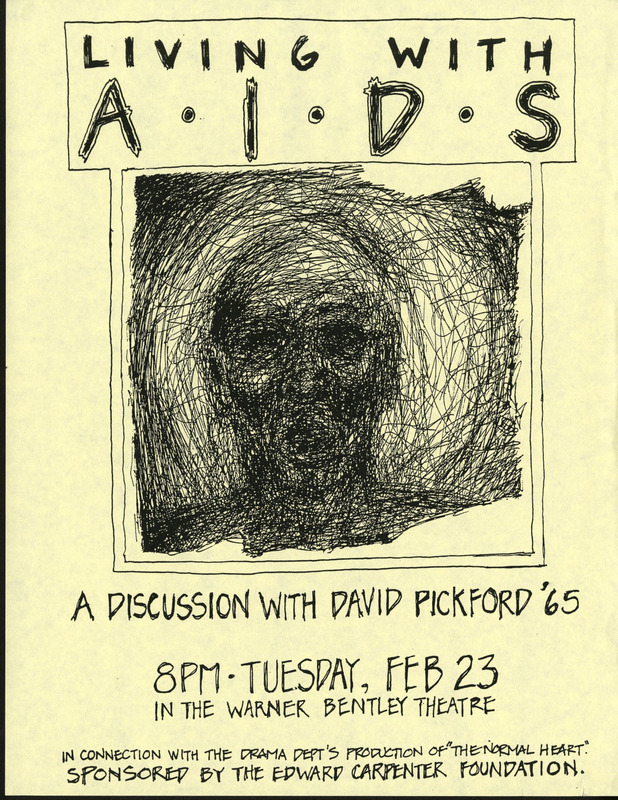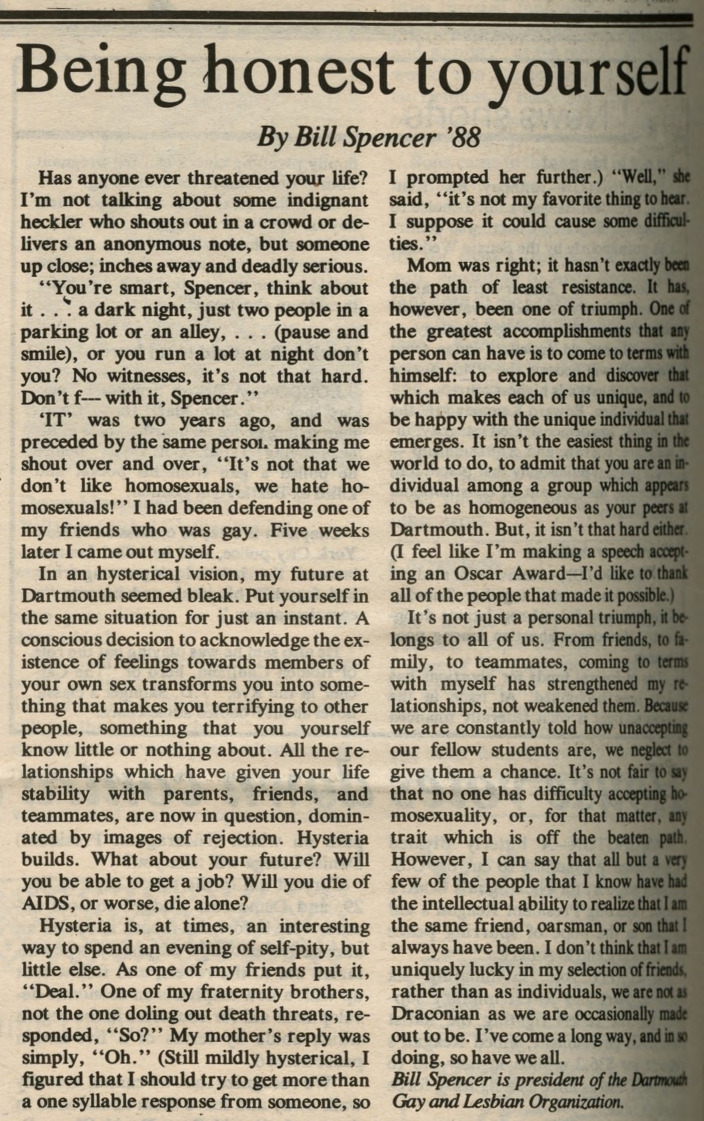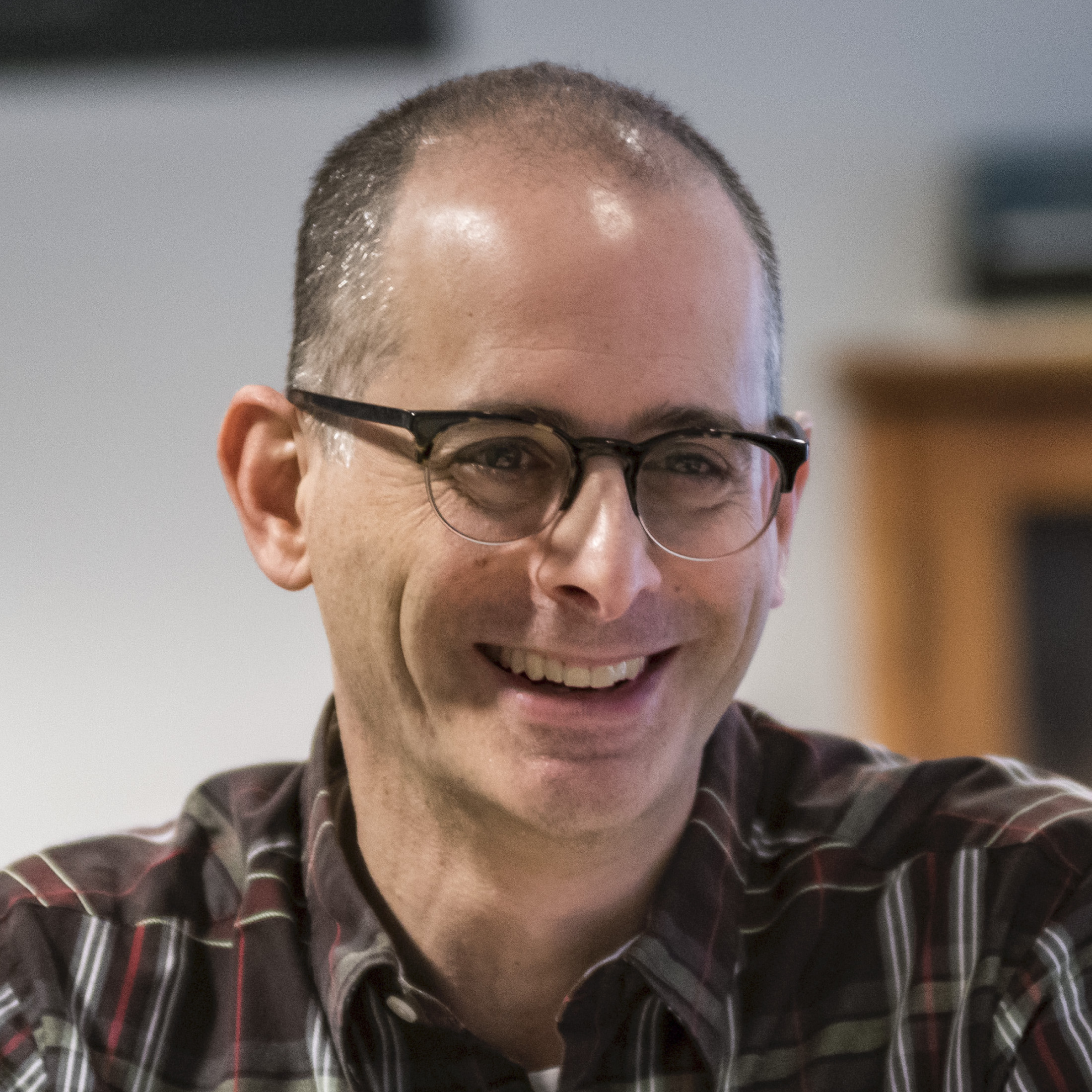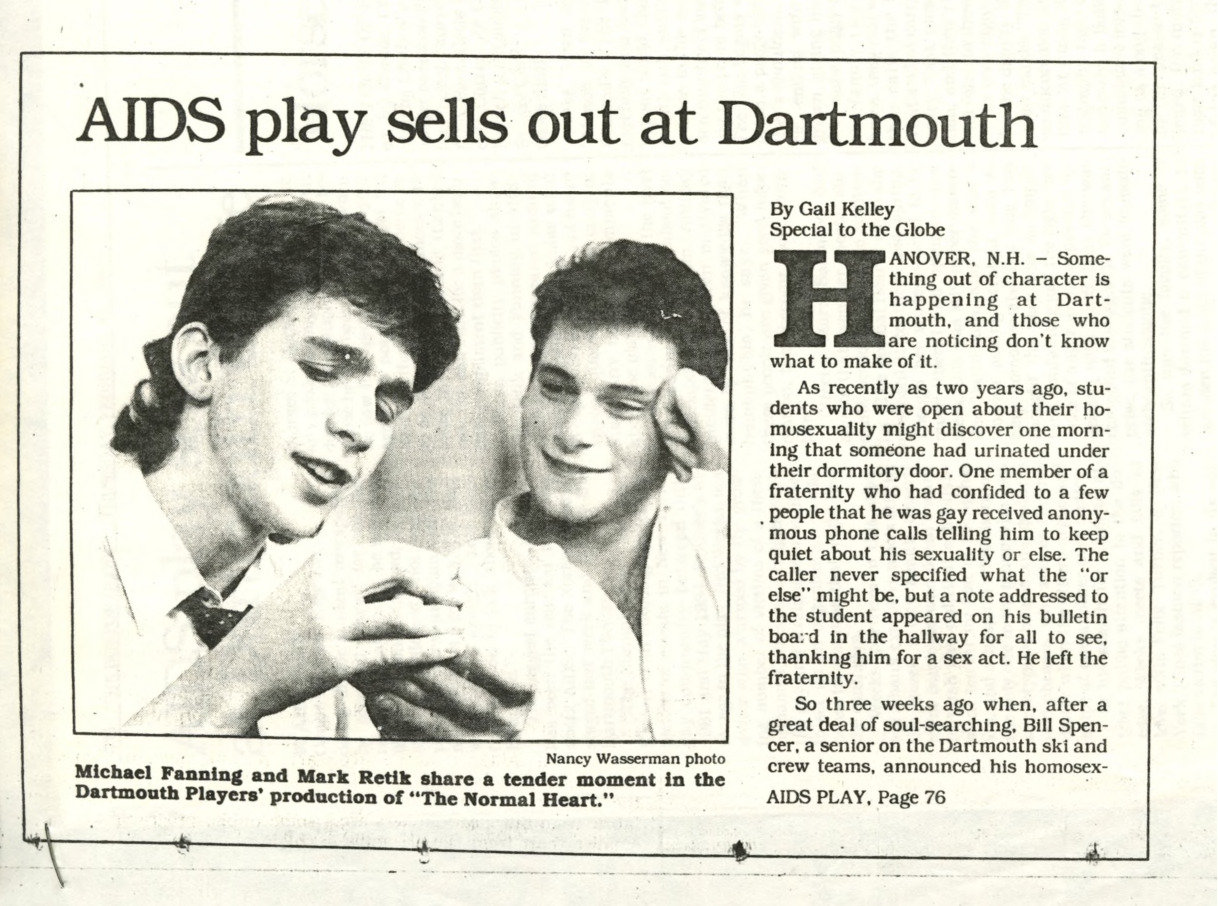Progress for Gay Rights
During this time, campus attitudes towards both safer sex and homosexuality moved toward more progressive views. In the years prior to RAID challenging misconceptions about AIDS, activists on campus had made progress in changing beliefs about gay acceptance. David Garling, who served as the head of the GSA, had leveraged the homophobic incidents of the mid-1980s in battling with the administration to approve a ‘sexual orientation’ clause to the College’s nondiscrimination policy. The board of trustees afforded the protection to gay students in November 1984.
Similarly, the Straights for Gay Rights Club was organized by David Seidenberg in response to the Review’s taping of a GSA meeting. The organization gathered over 900 signatures in support of extending the sexual orientation nondiscrimination clause to the admissions process and to employees of the College. Seidenberg’s effort was successful, as the trustees approved the extension in 1985.8
Homosexuality also entered the mainstream press during the late 1980s, with students writing editorials calling for gay acceptance in The Dartmouth. One, by Bill Spencer, described his experience coming to terms with his sexuality and how the realization strengthened “all of his relationships, from friends to family.” In another, an author described the love he felt for his gay friend, and his fear of losing him to AIDS.9
One key example of this newfound acceptance was students’ reaction to the winter 1988 performance of “The Normal Heart.” Produced by the Hopkins Center and performed by the troupe The Dartmouth Players, “Normal Heart” was a play written by gay activist Larry Kramer about his experience in Manhattan during the early AIDS epidemic. Notably, the lead romantic roles were played by two straight actors, who kissed on stage during the performance.
To accompany the premiere of the show, David Pickford ’65 was invited to campus to speak. Having recently been diagnosed with AIDS, Pickford delivered a powerful address on how the disease impacted the gay liberation movement, additionally discussing his own experiences living with AIDS. Both Pickford’s talk and the performance of “Normal Heart” brought to light and humanized the struggles and discrimination faced by the gay community in the early years of the AIDS epidemic. Students on campus, as well as community members, praised the performances. The Valley News reviewed “Normal Heart,” saying:
See this play. Unless you are among the unfortunate few Upper Valley residents who have already had personal experience with AIDS, you need to see "The Normal Heart" as surely as you need to know the Democratic and Republican platforms. You will be moved. You will be shocked. Above all, you will learn.”
Valley News, 1988
_______________________
9 Blanton, David. “When AIDS Becomes Real,” 10 April 1989. The Dartmouth (Hanover, NH). LH1.D3 D2. Reference. Rauner Special Collections Library, Hanover, NH.
From the Archives
Click on an image to access the full document, audio-visual components, and/or metadata associated with that item.
 Historical Accountability Student Research Program
Historical Accountability Student Research Program



